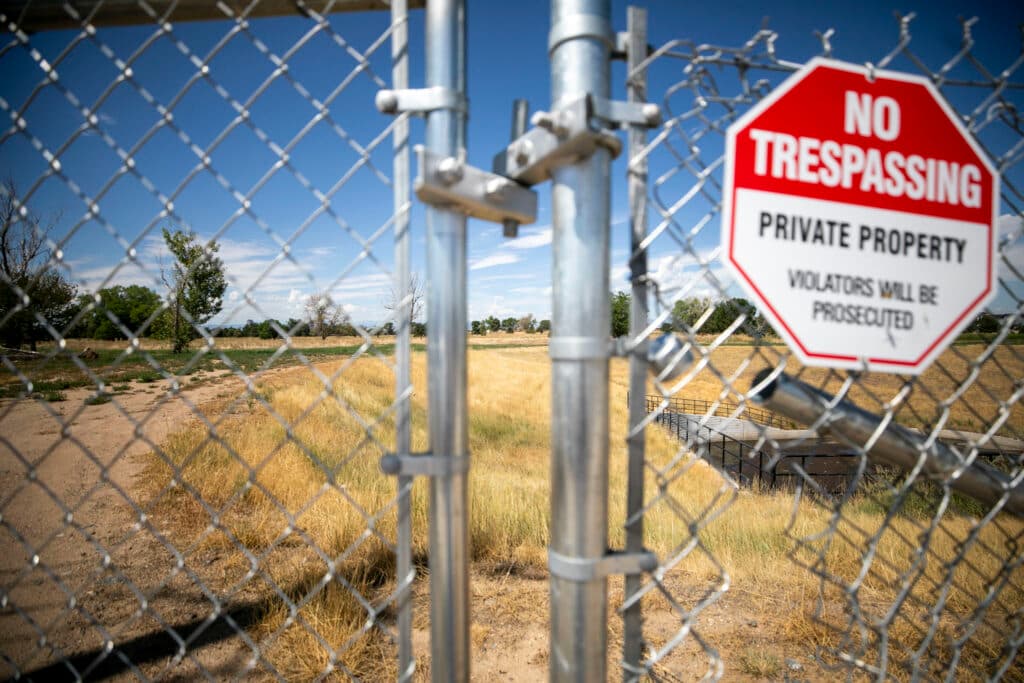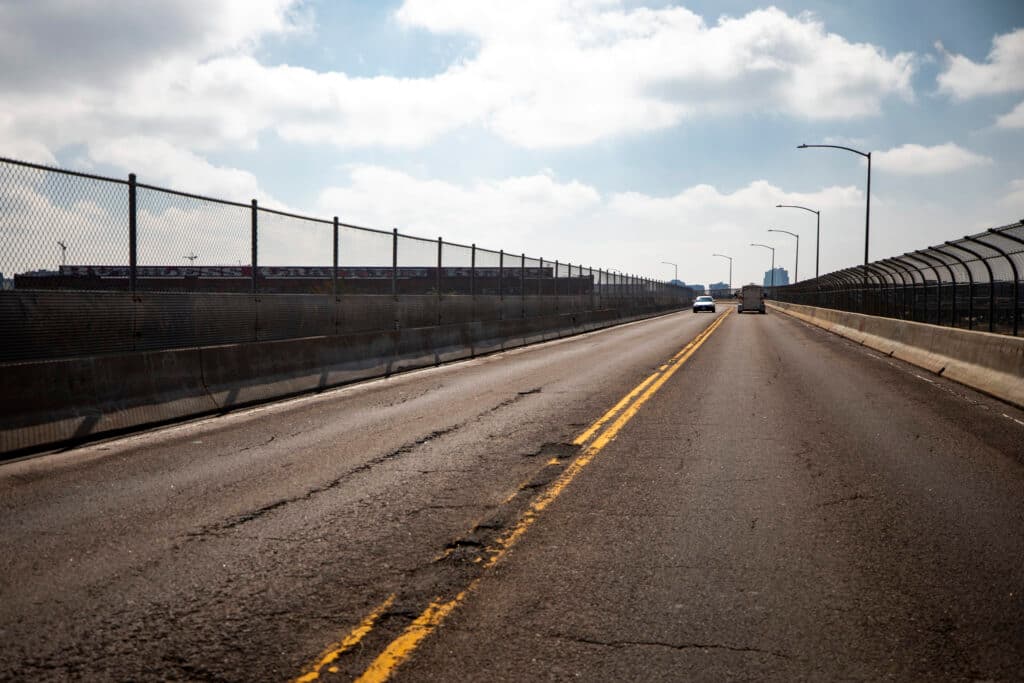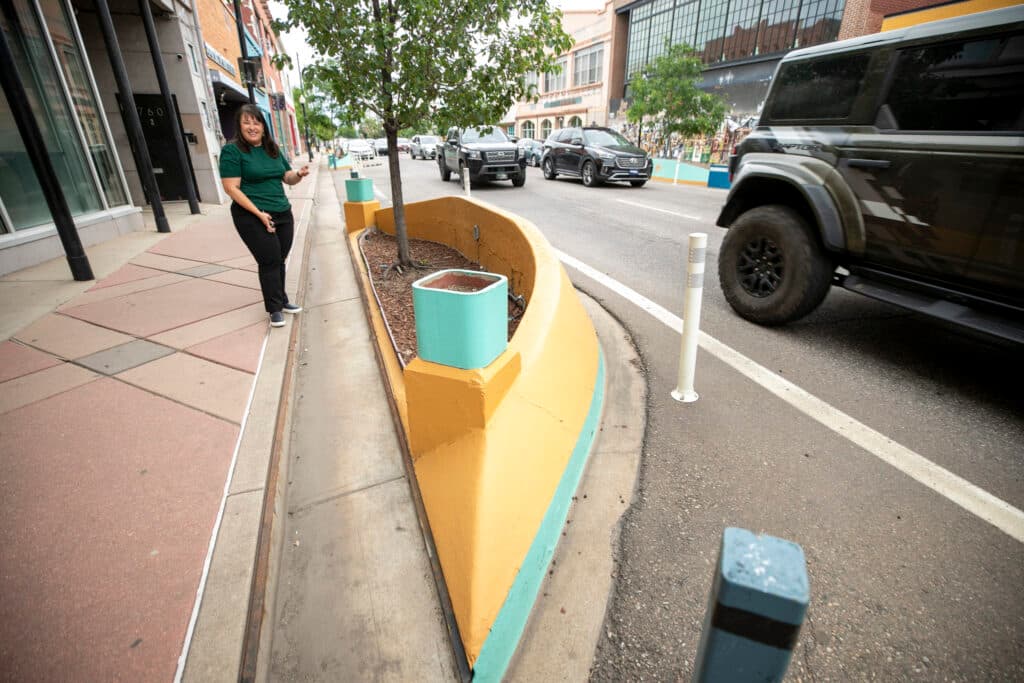On Tuesday, we learned how the city plans to spend $800 million from a proposed new bond package.
Members of the Vibrant Denver bond’s executive committee unveiled the project list after weeks of work to pare down ideas from city agencies, organizations and neighborhoods.
The bond process was criticized by community members and city officials for being rushed and not properly incorporating public feedback — and Tuesday’s rollout drew a strong reaction, too, with some Denver City Council members implying they could vote to block the proposal.
The package will go before voters in November, though the project list could still be changed by the mayor and the council.
Here are five major takeaways.
A major emphasis on parks and recreation.
Most of the projects on the proposed list would improve the city’s parks and outdoor facilities — a major priority identified by Denverites.
Several parks and recreation centers, such as the Montbello Recreation Center, Garland Park and Southwest Auto Park, are slated for improvements like better pools, a new playground and new tennis courts. Sloan’s Lake Park also would get funding to improve the environmental health of the lake.
The city also would set aside funds to build two brand new parks. The first would allow the city to build Emporia Park on land it recently bought in the Windsor neighborhood.
The second, much larger investment would be Park Hill Park, the city’s ambitious $200 million project. It would be built on the old Park Hill Golf Course, which the city is working to acquire from a developer. While the city hasn’t published pricetags, the bond could pay for a significant portion of the new park.

“This funding level would require a phased build-out approach and allow for improvements to approximately 1/3 of the site including establishment of basic park infrastructure (irrigation, landscape, walks, parking lots and drives) as well as park amenities likely to include a regional scale playground, active recreation opportunities such as sports fields and courts, water play, picnic areas, dog park, and passive recreation fields,” a project description from the city said.
While Park Hill Park made the cut, dozens of other outdoor proposals did not, including an amphitheater in Montbello, dog park improvements citywide and a downtown climbing wall.
Meanwhile, transportation projects were deprioritized.
The executive committee cut many of the projects proposed by the Connectivity subcommittee, which made recommendations for projects that improved transportation, mobility, streets and bridges. While the committee made 65 recommendations, only 12 were included in the proposed package.
Current proposed projects include significant renovations to busy roads for both cars and bicyclists, like the viaducts on 6th Avenue, 8th Avenue and Quebec Street. The proposal also would pay for “citywide pedestrian crossing safety improvements,” “citywide traffic signal improvements” and the replacement of two aging bridges over Cherry Creek.

However, the executive committee set several proposals related to pedestrians and cyclists, including proposals to convert several streets into pedestrian-friendly “shared streets” and even close off Larimer Street to cars entirely. Traffic-calming measures along several major passageways also were left behind.
Jill Locantore, the executive director of Denver Streets Partnership and a member of the Connectivity subcommittee, said she was underwhelmed by the executive committee’s choices and criticized Mayor Mike Johnston’s administration for once again failing to meet the standards of transportation advocates.
“It just does not seem like it's a top priority for his administration, particularly embracing bold, transformative projects,” Locantore said. “It's a lot of routine maintenance, which is very important, but a lot of us don't think the bond is the proper place to be funding those types of projects.”
Many neighborhoods aren’t getting a project.
City leaders centered equity when they announced the bond proposal in February. They said they wanted to cater to neighborhoods that have been traditionally neglected by the city in previous bond packages.
However, in the current bond package, many of the projects are in central Denver. While lower-income areas like Sun Valley and Elyria Swansea would get bond dollars for local projects, other neighborhoods — like Westwood, Central Park, East Colfax, Montbello and Green Valley Ranch — were chosen for just a few projects.
It isn’t for lack of trying — subcommittees unsuccessfully recommended ideas like an “IdeaLAB” for Green Valley Ranch, money to build out the Via Verde Trail in Westwood and a municipal building for northeast Denver, among dozens of other ideas.
The bond proposal does include some upgrades to existing facilities in those farther-out neighborhoods, such as the recreation center that serves Montbello and Green Valley Ranch.
Even if they don’t have a neighborhood-specific project, some areas would still benefit from citywide and regional improvements in the proposal, like plans to improve pedestrian crossings and traffic signals and money dedicated to the city’s participatory budget project.
A mixed response from advocates.
Several organizations and neighborhoods had feared that their passion projects would be cut from the bond’s final project list due to the difficult task of whittling the initial $6 billion dollar project list to today’s $800 million list.
Many groups sent representatives to lobby the executive committee to consider neighborhood proposals that have been long delayed or ignored.
Andrea Barela, who has been advocating for years for the reconstruction of Santa Fe Drive to make it safer and more accommodating, was pleasantly surprised to see the streetscape project in the proposed package.

“I think that our advocacy played a role in that,” Barela said. “I feel our city councilwoman played a role in that. And I think that it's going to be what's best for the community and for all the goals that we've been trying to achieve over all these years.”
Shannon Hoffman, a Capitol Hill resident who ran for a seat on Denver City Council in 2023, was among the plethora of voices calling for the city to fund public housing projects. She said the city should have gone further instead of opting for a public-private affordable housing partnership.
“There’s less community control, less community benefit and less community input. It sort of takes the ideas of community and twists them into a benefit for private entities as opposed to staying true to what the request is from community,” Hoffman said.
Denver City Council continues its strong criticism of the bond.
Everyone elected to Denver City Council took part in some way during the project identification phase. And they still have a role to play — the body can make adjustments to the package before it's potentially sent to voters.
During a Denver City Council committee meeting where bond officials presented the proposed package, council members grilled city officials over what was described as a botched rollout.
Councilmember Paul Kashmann criticized several aspects of the proposed bond package, including the fact that the city released the list without prices confirmed and that certain categories, like parks, were prioritized over others. City staff say price tags will be coming soon.
“Parks and Rec gets a large general fund disbursement every year. They get 40-some million dollars every year through Parks Legacy Fund. They've got other funding mechanisms,” Kashmann said. “I've got critical safety projects in my district that did not make this list, that ain't going nowhere for another five to 10 years if they're not on this bond package.”
Several council members also complained about a lack of projects for their districts.
“I just don't see how District 4 priorities, Southeast Denver, is reflected in this proposal,” said Councilmember Diana Romero-Campbell. “It's not.”
Councilmember Amanda Sawyer said she was “incredibly angry” with the process, citing concerns about the pricing and whether leftover bond dollars would be diverted to Johnston’s “pet project” in Park Hill Park. She indicated that she and others wouldn’t vote for the package in its current form.
“I don't know if you guys have noticed from the feedback around the table, but you don't have seven votes to refer this to the ballot anyway,” she said.
No actions were taken at Wednesday's meeting. City officials are hoping to push the bond package through council by August.












